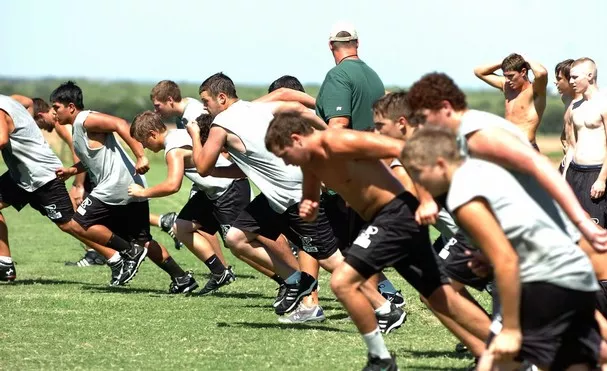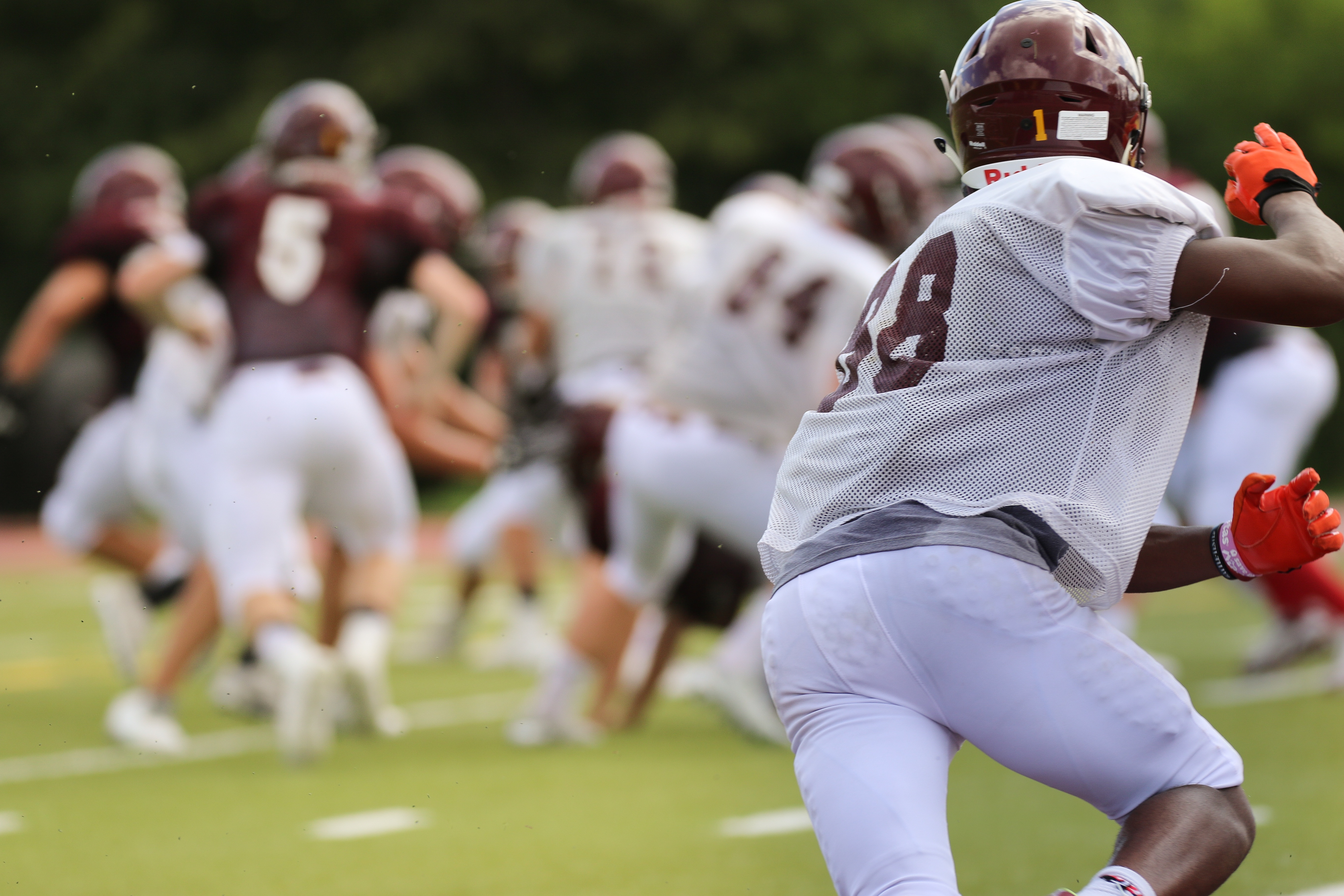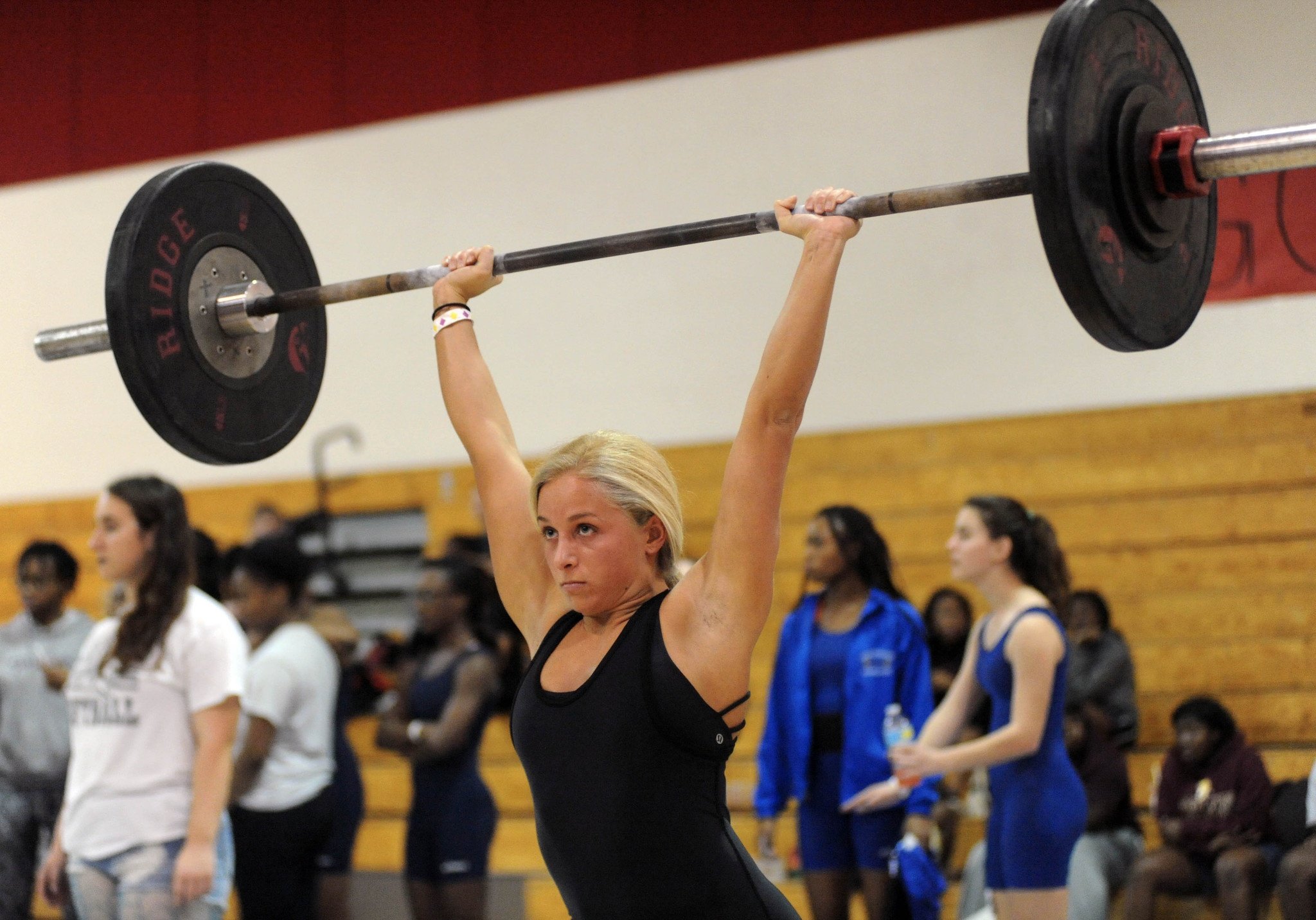Why Your Small School Strength Coach Should Be the Highest Paid Coach on Your Staff
Given the amount of education strength coaches must attain combined with many roles they play on an athletics staff, it’s common knowledge that the majority of small school strength coaches are underpaid. In fact, there are virtually no other professions which require similar demands but pay as little as the strength industry does. However, very few strength coaches are willing to give up their careers.
Why?
Because we all enjoy challenges and love what we get to do every day.
While this article may not surprise current strength coaches, it may be a worthwhile read for the school administration, fellow coaches, or interns.
What follows is a list of the many roles undertaken by strength coaches for the benefit of the athletes and athletic departments:
Head Strength & Conditioning Coach
Everyone knows the responsibilities that make up the role of head strength coach which gives little reason to rehash them all. However, there are several responsibilities that are unique to the small school position. For example, it is very common for strength coaches to work 12+ hour days due to the schedules of the teams in a small college setting. In some cases, working all 7 days a week at 12+ hours a day still isn’t enough time to work with all of the teams (depending on facility and team size). Many small schools have weight rooms around (or less than) 1,000 sqft., forcing coaches to load the room beyond a safe capacity, just to work with enough athletes each day. When there is a small weight room and large teams, there may literally not be enough hours in the week. And when the strength coach is a “one-man show,” this is the norm all year; there is no off-season.
At one point in my career, I would need 120 hours a week to work with all of the university’s teams 2x week (that’s 17 hours a day, 7 days a week). And that’s just for training sessions; not taking into account programming, continuing education, cleaning/maintenance, internship education sessions, etc.
Can you imagine what it would be like if your football team had to practice in such a small facility every day?
Athletic Trainer/Physical Therapist
An athletic trainer or physical therapist would probably roll their eyes at this heading. While strength coaches may not be deeply involved from the beginning of the rehab process, they are certainly involved in the end phase. When it comes to rehab, the job of an AT/PT is to return injured athletes to commence regular activity (let’s say 80%).
At this point, athletes can do most everything they were doing pre-injury, with a few exceptions. Strength coaches then have an athlete returning from an injury ready to get back under a bar or perform training beyond the capabilities of the athletic training room. At the same time though, the athlete cannot be thrown back into the regular team training program. That’s where the strength coach continues the work of the AT/PT and will write a carefully modified training program to allow the athlete to continue to rehab back to 100%.
Ready to give our programming software a shot? Take a 14-day trial, no strings attached >>
More commonly, small school strength coaches still need to be able to recognize a wide variety of muscular weaknesses and imbalances that might lead to injury. While injury prevention may not be a primary duty in a strength coach’s job description, it is without a doubt the most important duty.
Why?
Because if all of the athletes are injured, the strength coach is out of a job. I tell every recruit that my primary job is to keep them as healthy as possible to keep them playing, because playing their sport is one of, if not the, top reason they chose to come to this university!
In order to identify potential injuries specific to individual athletes, a great deal of knowledge of movement patterns, physiology, kinesiology, etc. is required. Granted, some coaches can get away with a checklist that blankets general injury prevention issues. However, because the human body is so varied, having a deeper knowledge will make the process of identifying and correcting potential injuries much more efficient.
Who else on the athletics staff has this kind of intricate knowledge of the human body? Athletic trainers and physical therapists do. And on whom would the job of movement screens and injury prevention training fall if strength coaches weren’t doing it?
Sport Psychologist
The amount of psychological training and preparation that strength coaches teach to athletes, both directly and through regular physical training is immense. I have seen more than a few sport coaches hire motivational speakers and military personnel to teach their athletes how to be great. While I believe that these experiences may be fun and (sometimes) educational for athletes, will a few hours of “toughness training” really make a big impact? Is one day of a ropes course or Navy Seal training really going to teach athletes culture, goals setting, or how to overcome adversity?
I will tell you what absolutely will have a lasting impact and will consistently teach athlete so persevere and overcome: regular training sessions with quality strength & conditioning coaches.
To foster real, applicable mental toughness you need look no farther than your weight room, court, or field. Week-in and week-out, strength coaches develop training programs that challenge athletes to push themselves mentally and physically. Setting goals, breaking records, and overcoming the seemingly impossible; it’s what we ask of teams and athletes every day, not just for a couple hours at the beginning of a new academic year.
Aside from the physical training aspect, most strength coaches also work with athletes on the purely mental side of their game. Positive mental imagery, focused rehearsal, competition preparation rituals and routines... Nearly all strength coaches have utilized these methods in their athletic careers and end up teaching them, whether they mean to or not.
Lastly, if sport coaches want to get an insider’s view on the real culture of their team, all they have to do is ask the strength coach. Because we spend more time with most teams throughout the year than any other coach (especially at the DIII level), strength coaches often have great insights into the thoughts and mental culture of a team. A team displays quality character and work ethic during sport practices, but how do they approach training, recovery, and nutrition outside of practice when the sport coaches aren’t around?
Nutritional Consultant
It’s fairly common for big time universities to have at least one Registered Dietician on staff. It’s my belief that dietary guidance is essential for college athletes. Not only is it the cornerstone of athletic performance, but most college freshman have never shopped for groceries or cooked a proper meal in their lives. It’s practically a necessity for small school strength coaches to have at least a basic knowledge (read: academic instruction, not blog-based opinions) of nutrition and be able to give appropriate and applicable advice to student-athletes. For some coaches, this may mean meeting with each team at the beginning of each academic year and covering general topics. For others of us, it also means sitting down to discuss strategies, crunch numbers, and provide reference materials for individual athletes.
Janitor/Maintenance
This job description may not apply to all strength coaches, but at DII and DIII it’s an absolute truth. Who cleans your floors? Who disinfects equipment to prevent skin infections? Who fixes equipment when it breaks? Who builds equipment that when you can’t afford to buy the retail version? Even if you work at a big time university, most of these responsibilities still fall on your staff (or you, if you’re a one man show).
Other Duties as Required
Working a second job in order to make ends meet financially is a reality for most small school strength coaches. Many strength coaches work as private performance coaches or personal trainers in their limited free time. Some of us also teach classes at our universities. Many small school S&C positions are also combined with the role of Fitness Center Manager or Facilities Manager.
How many coaches do you know of from your athletic department that wear this many hats? If small school strength coaches charged a standard hourly rate, by the “job”, or even figured in compensation for years of internships, higher education, and mandatory CEU requirements the pay levels in our field would be very different!
Conclusion
The crazy thing here is that we all know what we’re getting into when we take our first paid job in this field. While it is an oversight that small school strength coaches do not have compensation comparable to other professionals who have the same academic achievements and experience, we do it because we enjoy the challenge and love the work. Do something because you enjoy it, not because of the salary. That’s what we’re told, right?
-
This is an anonymous guest blog by a small school head strength coach, MS, CSCS.
Subscribe to our blog
Subscribe to receive the latest blog posts to your inbox every week.
Related posts

10 Things High School Strength Coaches Need to Do Every Day

Being a 1st Time High School Football Strength Coach - Part 2

